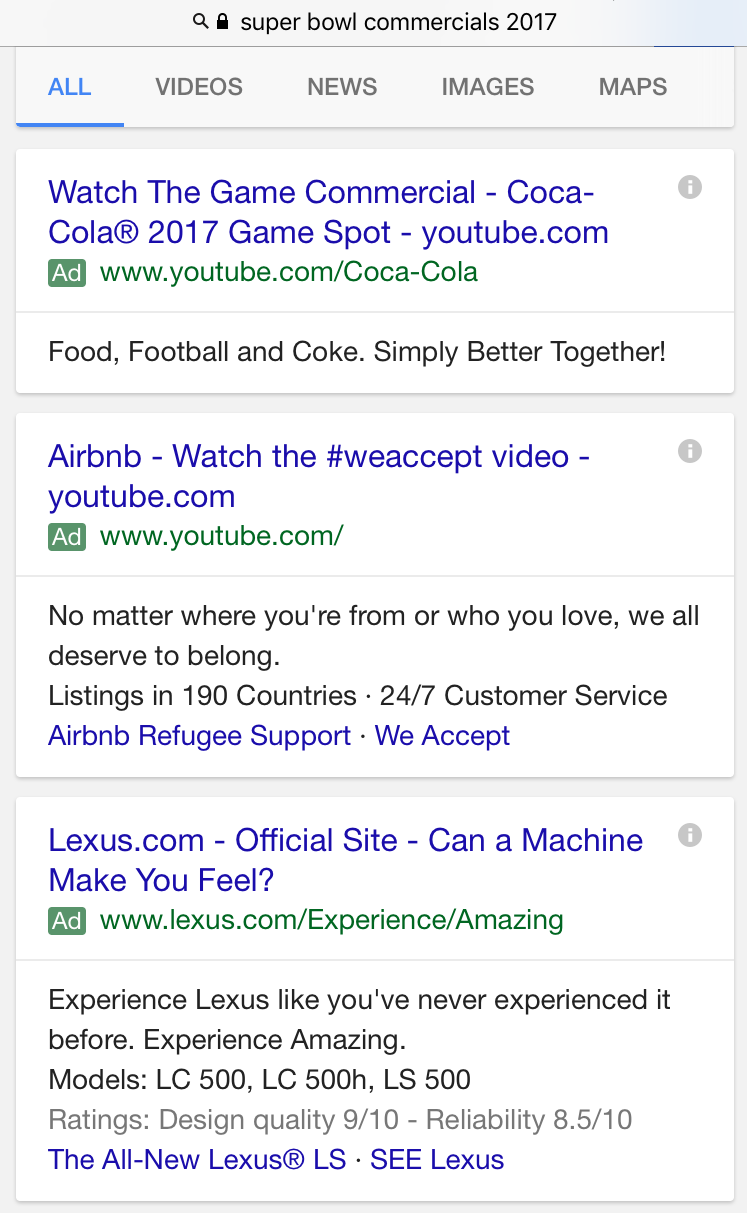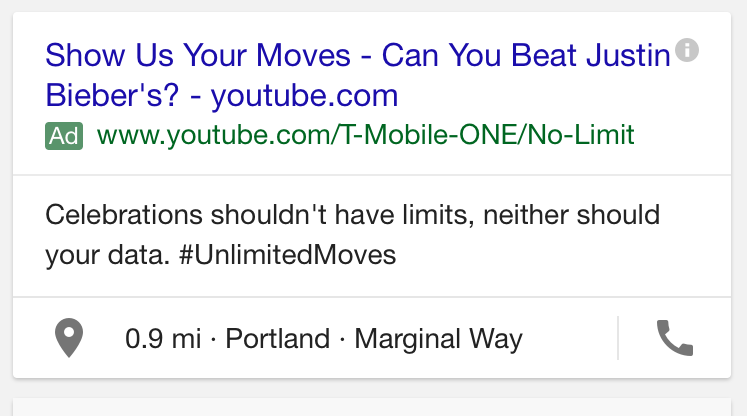84 Lumber and Avocados From Mexico among Super Bowl advertisers that stood out in paid search
Both advertisers opted to drive users to their own sites instead of YouTube.
As the Patriots’ Tom Brady was showing fans and foes alike why you should never count the seasoned veteran out, 84 Lumber was showing marketers how an advertising newcomer can make a major splash on a day when it’s incredibly tough to stand out. As part of its digital push, the building supply company invested consistently in paid search before, during and after the game.
84 Lumber began using paid search in the week ahead of the game to tease its ad spot depicting a mother and daughter’s journey to cross the border into the US in its campaign to promote job opportunities with the company.
84 Lumber had to retool its campaign after Fox said the end of the ad, in which the pair enters through a door in wall along the border, was too controversial. This turned out to be a boon for the company, as it chose to leave the ad with a cliffhanger and direct viewers to watch the ending online. 84 Lumber changed up its paid search ads to finish the journey for both brand and non-brand queries.
There was a glitch when its microsite quickly became overloaded, and the landing page couldn’t load for several minutes. The company told Marketing Land the site received 6 million requests an hour after the ad aired.
Once the game got underway, more advertisers kicked their paid search campaigns into gear. Avocados From Mexico deserves recognition for its use of callout extensions and sitelink extensions highlighting Super Bowl recipes in its ads.
Merkle noted Avocados From Mexico’s strong sitelinks game in the agency’s fourth annual Digital Bowl Report:
Rather than simply directing the user to view its ad and teasers, the brand provided true (and tasty) value through its sitelinks by linking to usable content, such as recipes for “Hard Hitting Guacamole” and “Avo Footballs.”
Other advertisers that stood out during the game in paid search included Coke, Airbnb, Lexus and T-Mobile.
Coke advertised its Super Bowl ad and directed viewers to watch it on YouTube.
Airbnb also drove traffic to YouTube and was one of the few advertisers to use a hashtag in its (last minute) Super Bowl campaign this year.
Lexus directed users to a landing page on its own site that includes more than just the ad the car brand ran during the game, including behind-the-scenes footage.
T-Mobile sublimated its branding in the display URL in paid search ads that used a call to action to beat Justin Beiber’s dance moves. These ads also drove users to YouTube. The company’s #UnlimitedMoves hashtag closes out the description. Interestingly, the brand’s location extensions continued to show on these ads when applicable, letting people know just how close by a T-Mobile location is.
This is not a comprehensive accounting of every Super Bowl advertiser that played in paid search. WeatherTech, Sprite and Tide, for example, are among those also appearing on broad Super Bowl ad-related searches. Merkle found Budweiser’s paid search efforts hit all the marks with brand and campaign-related query targeting, a mobile-friendly landing page and ad copy that were all tied into the television spot.
Snickers released four teaser ads for its live ad before the game and could be spotted regularly on paid search before game day. But the candy brand didn’t appear to back up that momentum with search ads during the game.







